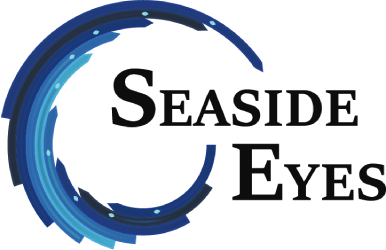Macular degeneration is an ocular condition that impacts the central field of vision. Most commonly affecting patients over 50 years old, the disease progresses gradually and may not be noticeable at first. The doctors at Seaside Ophthalmology, Inc., provide advanced screening for patients in the Brunswick, GA, area. If we confirm a diagnosis, we can refer you to an on-site specialist to ensure that you receive the prompt treatment you need. While macular degeneration cannot be fully cured, management of the condition may prevent serious vision loss.
Types of Macular Degeneration
Macular degeneration, also known as age-related macular degeneration, AMD, or ARMD, affects the macula, the region of the retina responsible for central vision. There are two types of macular degeneration:
Dry Macular Degeneration
Dry AMD is the more common form of the condition and is characterized by aging and thinning of the macula, as well as the accumulation of clumps of protein, known as drusen. The progression of dry AMD is typically slow.
Wet Macular Degeneration
Wet AMD occurs when newly developed, irregular blood vessels grow under the retina and begin leaking blood or other fluids. This causes scarring on the macula which affects your sight. While less common, wet AMD is the more serious of the two forms and leads more quickly to vision loss.

The Impact of a Compromised Central Field of Vision
When the macula is damaged, the central field of vision can become distorted and appear blurry or dark. Some patients even experience blank spots in their sight. Your central field of vision is crucial to complete daily tasks such as:
- Driving
- Reading
- Watching TV
- Cooking
While the loss of your central field of vision does not make you completely blind, it is important to notify your doctor if you notice any changes in the quality of your sight. However, it is not uncommon for macular degeneration to go unnoticed until it has become more advanced.
Screening for AMD
Our practice provides screening for AMD and can coordinate care for patients who require treatment. During your examination, we will utilize the state-of-the-art SPECTRALIS® OCT (optical coherence tomography) imaging device. This advanced instrument allows us to closely view the retina and macula, identifying signs which point to macular degeneration.
While macular degeneration cannot be fully cured, management of the condition can typically prevent serious vision loss.
Injectable Treatments
Injections have been found to be particularly effective at managing the effects of AMD. Anti-VEGF (vascular endothelial growth factor) injections are designed to prevent the growth of abnormal blood vessels, slowing the progression of the condition. These injections are typically administered every four to six weeks. In order to provide convenient and streamlined care to our patients, you may receive this treatment in our office as needed.
Schedule Your Screening
Early detection is key to slowing the progression of macular degeneration. If you have noticed changes in your vision, reach out to our compassionate staff. Schedule your screening as soon as possible by contacting us online or calling (912) 466-9500.



